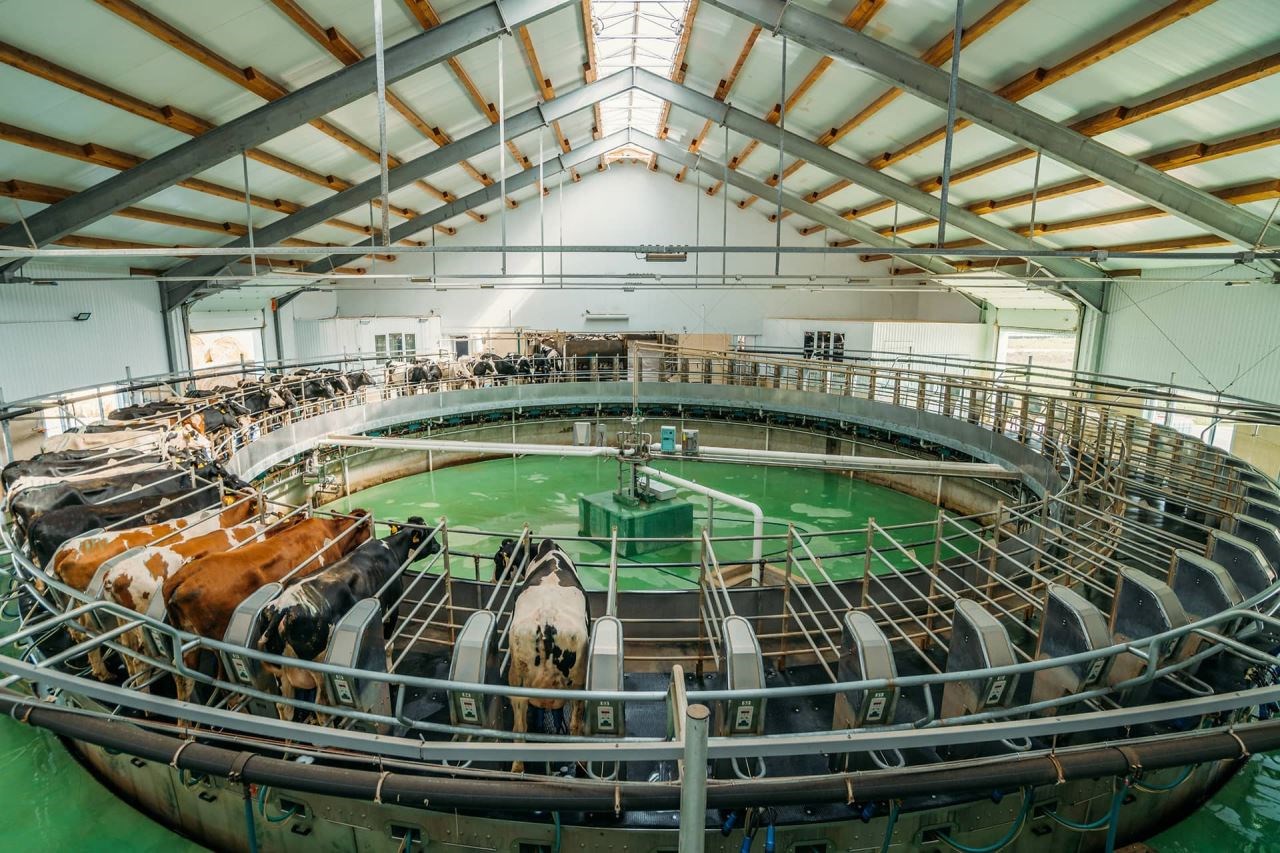Milking machines are an important part of the dairy industry as they make the process of milking easier and more efficient for dairy farmers.
First UK milking machine
The first milking machine was invented in 1877 by a Scottish farmer named Alexander Cumming. He created a device that could milk 12 cows at once, which was a huge improvement from the hand-milking method that was being used at the time.
Over the years, milking machines have improved considerably, and it’s important to have the right milking machine for your business to ensure you get the best yields in the most effective time.
At Douglas Green Consulting, we are a dairy farm consultancy that provides advice and support to dairy farmers across the UK. If you need any advice regarding the purchase and implementation of a new milking machine, get in touch.
Different Types of Milking Machines - Consider options
One of the most popular types of milking machines is called "circular rotating parlours". These devices are used widely in countries like New Zealand, Australia and Canada to quickly and efficiently milk cows. They're also known as "rotary parlours" or "parlour systems".
The circular rotating milking parlour is a type of milking machine that’s designed to be erected in a dairy herd. The parlour rotates around a central pivot point, and cows enter the parlour at one end and exit at the other.
The circular rotating milking parlours are more convenient for farmers as they can avoid having to walk through the herd to milk each cow. This means less stress on the cows and fewer injuries for farmers.
The design of this type of machine has been refined over many years, with careful consideration given to factors such as how much time it takes for the cows to get used to the system, how much time it takes for them to be milked, and how much time it takes for them to walk through from one end of the machine back out again.
There are other alternative milking machines that are developed for different environments such as barn-milking systems or portable milking machines which are useful for small herds of up to 20 cows but become less effective as your herd increases.
4 Milking parlour designs
When deciding on a milking machine, it’s important to think about the process or system you want to use going forward (and note that you don’t have to stick with the process that you have always used in the past). Every parlour needs to be designed so you and your animals are comfortable and safe at all times.
There are 4 processes when it comes to milking cows in a parlour. The tandem, parallel, herringbone and rotary.
Tandem Milking Parlours
With tandem parlour designs, cows stand nose-to-tail inside individual stalls. While the tandem process lines the cows up side by side behind each other, typically with a side-opening door, the parallel milking system lines them up in a way that optimises the space available in the parlour.
Parallel milking parlours
The parallel process allows all cows to stand in parallel to each other. To ensure efficient daily milking, cows line up in these parallel parlours with each cow positioned perfectly for quick and safe milk removal. This streamlined process only takes a few minutes from start to finish until all of the animals are released back into pasture.
Herringbone milking parlours
The herringbone, as the name suggests, lines up the cows at a 45-degree angle, allowing you to access the cows for milking from a different angle.
Rotary milking parlours
The rotary system (also mentioned earlier) has many advantages, including the fact that you don’t need to go to each cow to milk them, as they effectively come to you.
The system that you adopt will influence the milking machine that you decide to deploy.
Independent farm advice
To ensure you select and install the right milking machine for your farm, make sure to get expert help from an independent farm consultancy that has experience in supporting dairy farmers, and has knowledge of the latest milking machines and processes.
At Douglas Green, we are dairy farm consultants that have the right expertise. Get in touch for a free chat to see how we can help!



